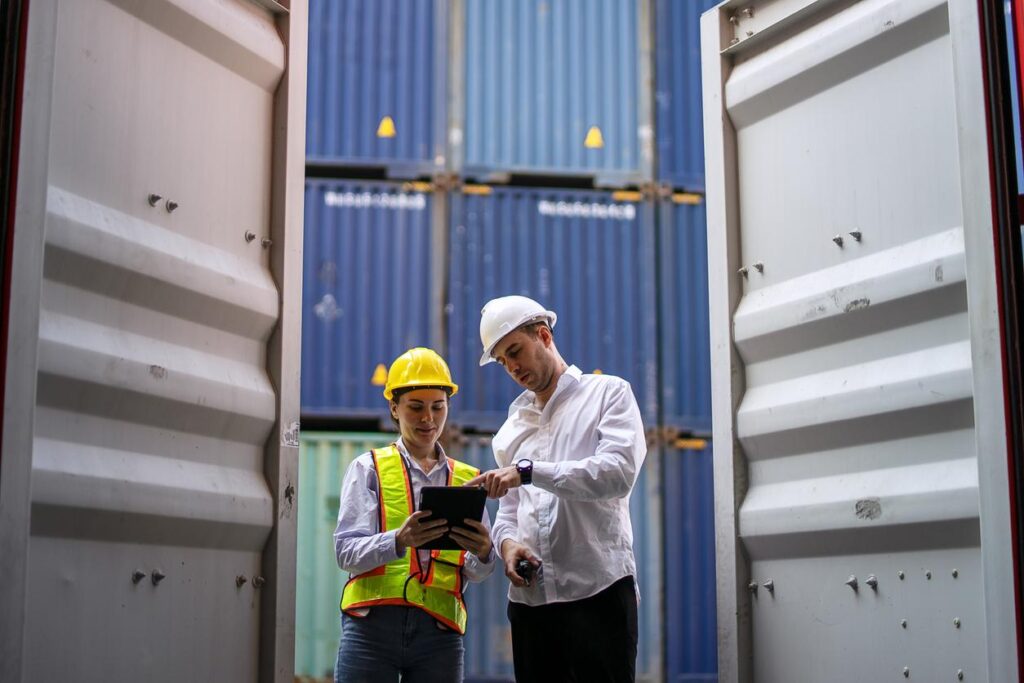
Choosing the right 3PL provider is a decision that can significantly impact your business’s efficiency and growth. Key factors to consider include their industry expertise, technological capabilities, scalability to match your business needs, geographic reach for seamless delivery, and exceptional customer service to address challenges promptly. A reliable 3PL partner not only streamlines logistics but also enhances customer satisfaction and supports long-term success.
Table of Contents
- Industry Expertise: Aligning with Your Business Needs
- Technological Capabilities: The Backbone of Modern Logistics
- Scalability and Flexibility: Adapting to Your Growth
- Geographic Reach: Expanding Your Market Presence
- Customer Service Excellence: A Pillar of Success
- Final Thoughts: Building a Strong Logistics Partnership
Imagine this: your business is growing rapidly, and managing logistics in-house has become overwhelming. Orders are piling up, delivery timelines are tightening, and you’re struggling to keep up with demand. You’ve heard that outsourcing to a third-party logistics (3PL) provider could be the solution, but how do you choose the right one? With so many options available, selecting a partner that truly aligns with your unique needs can feel like navigating a maze.
A reliable 3PL provider doesn’t just handle shipments—they streamline your entire supply chain, improve operational efficiency, and allow you to focus on what matters most: growing your business. However, partnering with the wrong provider can lead to costly disruptions, damaged customer relationships, and missed growth opportunities. If you are looking for the right partner for your business make sure to check out https://www.steelesgroup.com/3pl-logistics-calgary/ to get more professional insights.
Industry Expertise: Aligning with Your Business Needs
Not all 3PL providers are created equal, and their level of industry expertise can significantly impact your logistics operations. A provider with deep knowledge of your specific industry—whether it’s e-commerce, retail, manufacturing, or cold chain logistics—can offer tailored solutions that address your unique challenges and requirements.
For instance, a 3PL specializing in perishable goods will have the infrastructure and experience to handle temperature-sensitive shipments, securing product quality and compliance with regulations. Similarly, a provider experienced in e-commerce fulfillment will be equipped to manage high order volumes, returns processing, and last-mile delivery challenges.
When evaluating a 3PL’s industry expertise, consider asking the following questions:
● What industries do they primarily serve, and how does their experience align with your business?
● Do they have case studies or success stories from clients in your sector?
● Are they familiar with the regulatory requirements and logistical nuances specific to your industry?
Technological Capabilities: The Backbone of Modern Logistics
In today’s fast-paced, data-driven world, technology is the cornerstone of efficient logistics operations. A 3PL provider with advanced technological capabilities can offer real-time visibility, streamline processes, and enhance decision-making through data analytics. Without robust tech infrastructure, even the most experienced 3PL may struggle to meet modern supply chain demands.
When evaluating a provider’s technological capabilities, consider the tools and systems they use to manage logistics. Key technologies to look for include:
● Warehouse Management Systems (WMS): Secures accurate inventory tracking, optimized storage, and efficient order fulfillment.
● Transportation Management Systems (TMS): Provides real-time shipment tracking, route optimization, and cost analysis.
● Integration Capabilities: The ability to seamlessly integrate with your existing ERP or e-commerce platforms for end-to-end visibility.
For businesses in Canada, where geographic diversity and cross-border shipping add complexity, technology becomes even more critical. A provider leveraging automation, AI, and predictive analytics can help you anticipate demand fluctuations, reduce transit times, and improve delivery accuracy.
Scalability and Flexibility: Adapting to Your Growth
As your business grows, so do your logistics needs. A 3PL provider that can scale alongside you is essential for maintaining efficiency and avoiding disruptions during periods of expansion. Whether you’re preparing for seasonal spikes, entering new markets, or increasing order volumes, a scalable and flexible logistics partner secures your operations remain seamless.
Scalability refers to a provider’s ability to handle increased demand without compromising service quality. For instance, during peak seasons like the holiday rush, a scalable 3PL can allocate additional resources—such as warehouse space, workforce, or transportation capacity—to meet heightened requirements. Similarly, flexibility allows them to adapt to unexpected changes, such as sudden shifts in customer demand or supply chain disruptions.
When assessing a 3PL’s scalability and flexibility, consider the following:
● Capacity: Do they have the infrastructure and network to accommodate your growth?
● Peak Season Preparedness: How do they handle high-volume periods without delays or errors?
● Customization: Can they tailor their services to align with your evolving needs?
For Canadian businesses, scalability and flexibility are particularly important due to the country’s vast geography and varying regional demands. A 3PL with a robust distribution network can help you expand into new provinces or international markets without logistical hurdles.
Geographic Reach: Expanding Your Market Presence
A 3PL provider’s geographic reach is a critical factor that directly impacts your ability to deliver products efficiently and expand your market presence. For businesses operating in Canada—a country known for its vast geography, diverse regions, and cross-border trade opportunities—partnering with a provider that has an extensive network can make all the difference.
A provider with a strong geographic footprint can offer faster delivery times, reduce shipping costs, and improve customer satisfaction by positioning inventory closer to key markets. For example, if your business ships products from Vancouver to Toronto, a 3PL with strategically located distribution centers across Canada can significantly cut transit times and lower transportation expenses.
When evaluating a 3PL’s geographic reach, consider the following:
● Domestic Coverage: Do they have warehouses or fulfillment centers in regions where your customers are concentrated?
● Cross-Border Capabilities: Can they efficiently manage shipments to and from the United States or other international markets?
● Last-Mile Delivery: How do they handle the final leg of delivery, especially in remote or rural areas of Canada?
For Canadian businesses looking to scale, geographic reach also opens doors to new opportunities. A 3PL with international expertise can help you navigate complex customs regulations, tariffs, and compliance requirements when expanding into global markets. This not only broadens your customer base but also strengthens your competitive edge.
Customer Service Excellence: A Pillar of Success
In the world of logistics, challenges are inevitable—whether it’s a delayed shipment, a misplaced order, or an unexpected customs issue. How your 3PL provider handles these situations can make or break your business’s reputation. Exceptional customer service is not just a bonus; it’s a necessity for securing smooth operations and maintaining trust with your clients.
A 3PL provider that prioritizes customer service will go above and beyond to resolve issues promptly, communicate transparently, and offer proactive solutions. This level of support is especially critical for Canadian businesses, where logistical complexities like cross-border shipping or remote deliveries can introduce unique challenges.
When evaluating a 3PL’s customer service capabilities, consider the following:
● Responsiveness: Are they quick to address inquiries, concerns, or issues?
● Communication: Do they provide regular updates and maintain clear, open lines of communication?
● Problem-Solving: How do they handle disruptions, and what measures do they have in place to prevent them?
For example, imagine a situation where a shipment is delayed due to inclement weather—a common occurrence in Canada. A 3PL with excellent customer service would immediately inform you and your customers, provide alternative solutions, and work tirelessly to minimize the impact. On the other hand, poor customer service could leave you scrambling to manage frustrated clients on your own.
Final Thoughts: Building a Strong Logistics Partnership
Choosing the right 3PL provider is more than a transaction—it’s the foundation of a partnership that can drive your business forward. A reliable 3PL doesn’t just handle logistics; they become an integral part of your supply chain strategy, helping you navigate challenges, seize opportunities, and deliver exceptional customer experiences.
As we’ve explored throughout this article, key factors like industry expertise, technological capabilities, scalability, geographic reach, and customer service excellence are critical to making an informed decision. By prioritizing these elements, you can build a relationship that not only meets your current needs but also adapts to your evolving goals.









